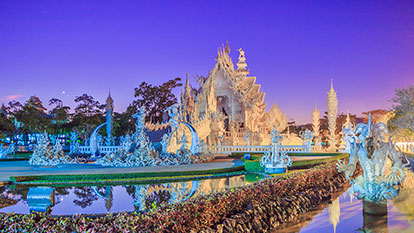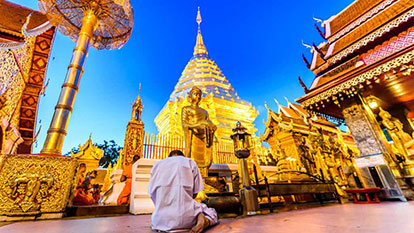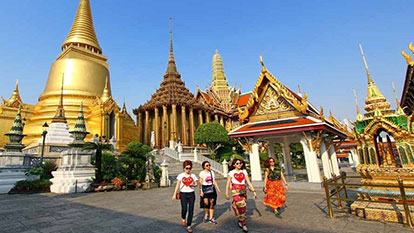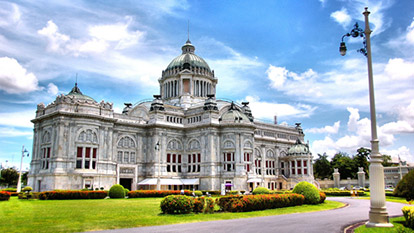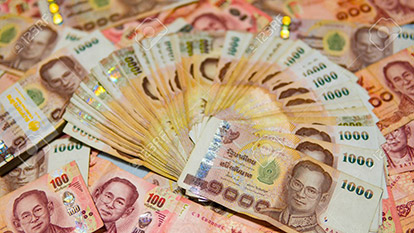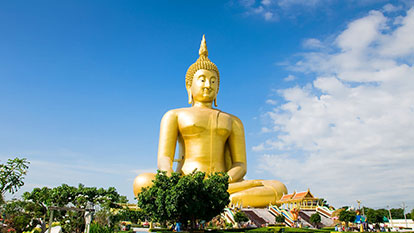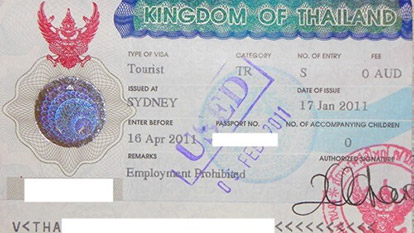History of Thailand
Early Thailand History and the Ayutthaya Kingdom
In the 14th and 15th centuries, the Ayutthaya Kingdom emerged as a powerful and prosperous empire, significantly shaping the history of Thailand. Strategically positioned near the Chao Phraya River, Ayutthaya flourished as a bustling trading hub, connecting Asia with Europe. This golden age, however, was interrupted by repeated Burmese invasions. The kingdom fell in 1569, was briefly revived, but ultimately succumbed in 1767, marking the end of an era. To delve deeper into this fascinating period and discover the remnants of this once-mighty kingdom, consider consulting a Thailand travel agency like Galatourist for expert guidance on your Thailand travel journey.

The Chakri Dynasty and the Rise of Bangkok
The fall of Ayutthaya paved the way for the Chakri Dynasty, established in 1782 by Phraya Chakri, later crowned King Rama I. Under his leadership, the capital was moved to Bangkok, a strategic and secure location. The dynasty, still reigning today, brought stability and continuity to the nation.
Bangkok rapidly became the political, cultural, and spiritual heart of Thailand, home to iconic landmarks like the Grand Palace and Wat Phra Kaew. To learn more about the rich history and vibrant culture of Bangkok, consider consulting a Thailand travel guide or seeking the expertise of a Thailand travel agency like Galatourist to plan your what to know about Thailand journey.
Modernization Under Rama IV and Rama V
The mid-19th century brought transformative changes to Thailand under the reign of King Mongkut (Rama IV). He initiated the nation's engagement with the global community by fostering trade and diplomatic ties with European powers. His visionary leadership also introduced a modern education system inspired by Western models, laying the groundwork for future advancements.
Building on his father’s legacy, King Chulalongkorn (Rama V) implemented sweeping reforms that further propelled Thailand into the modern era. He abolished slavery, restructured the military, and centralized governance, creating a more efficient administrative system. These progressive measures safeguarded Thailand’s sovereignty during a time when much of Asia fell under colonial rule.
Transition to a Constitutional Monarchy
The early 20th century was a time of political upheaval. King Prajadhipok (Rama VII) faced growing demands for political reform. In 1932, a bloodless coup transformed Thailand from an absolute monarchy to a constitutional monarchy. The country officially adopted the name "Thailand" in 1939, symbolizing its independence and pride.
To delve deeper into the fascinating history of Thailand and gain insights into the country's rich cultural heritage, consider hiring an English-speaking guide in Thailand or consulting a Thailand travel agency like Galatourist to curate a personalized Thailand travel experience.
Thailand During WWII and the Cold War
During World War II, Thailand allied with Japan, allowing Japanese forces to use its territory. The infamous Burma-Siam Railway, built with forced labor, remains a somber reminder of this period.
In the post-war era, Thailand aligned with the United States during the Vietnam War, granting access to military bases. This strategic partnership accelerated economic growth and modernization.
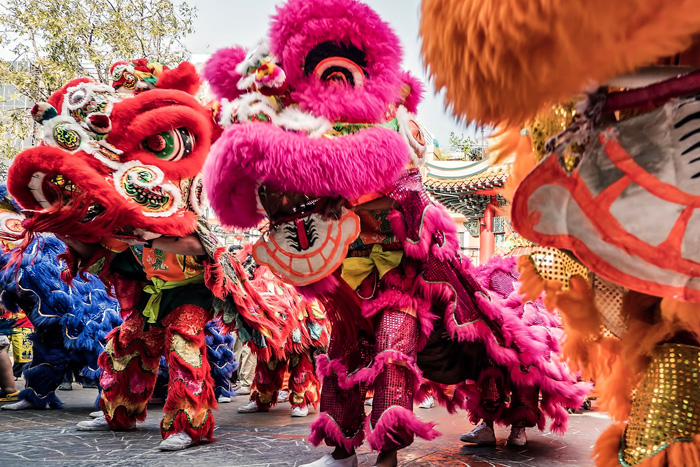
Democracy and Political Struggles
Thailand's journey toward democracy has been a tumultuous one, marked by military coups, allegations of corruption, and widespread protests. After decades of military rule, a wave of student protests in 1973 led to the return of civilian governance. However, the delicate balance between civilian and military power has remained fragile.
To gain a deeper understanding of Thailand's complex political history and its impact on contemporary society, consider consulting a Thailand travel guide or seeking the expertise of a Thailand tour operator like Galatourist. Our knowledgeable guides can provide valuable insights into the country's past and present, enriching your what to know about Thailand experience.
The 2004 Tsunami and Recovery
The devastating tsunami of December 26, 2004, left an indelible mark on Thailand, particularly along its stunning Andaman coast. Thousands of lives were tragically lost, and the tourism industry, a cornerstone of Thailand's economy, suffered significant setbacks. Yet, the nation demonstrated remarkable resilience, rebuilding its infrastructure and continuing to attract millions of visitors annually.
Despite the initial devastation, many popular travel destinations in Thailand along the Andaman coast have made a remarkable recovery. Hotels in Thailand have been rebuilt and upgraded, offering world-class accommodations and amenities. Souvenir shops in Thailand have reopened, showcasing the country's vibrant culture and unique handicrafts.
To explore the beauty and resilience of Thailand's Andaman coast, consider consulting a Thailand travel guide or seeking the expertise of a Thailand tour operator like Galatourist. Our knowledgeable guides can help you discover hidden gems, experience authentic Thai culture, and contribute to the ongoing recovery of the region's tourism industry.
Yingluck Shinawatra and Modern Leadership
In 2011, Yingluck Shinawatra became Thailand’s first female Prime Minister, a milestone in its political history. Representing the populist Pheu Thai Party, her leadership highlighted Thailand’s evolving democratic ideals despite ongoing challenges.
Cultural and Historical Significance
Thailand's history is not merely confined to the pages of textbooks but is vividly etched in its architecture, traditions, and vibrant festivals. Iconic sites such as Ayutthaya Historical Park, the Grand Palace, and the River Kwai Bridge offer captivating glimpses into the country's storied past. These historical landmarks draw millions of tourists each year, making history an integral part of Thailand's cultural identity.
By visiting these historical sites, travelers can gain a deeper understanding of Thailand's rich heritage and the events that have shaped the nation. Whether you're exploring the ancient ruins of Ayutthaya, marveling at the grandeur of the Grand Palace, or reflecting on the poignant history of the River Kwai Bridge, you'll be immersed in the heart of Thailand's past.

To make the most of your historical journey, consider consulting a Thailand travel guide or seeking the expertise of a Thailand tour operator like Galatourist. Our knowledgeable guides can provide valuable insights into the significance of these historical sites, share fascinating stories from the past, and help you navigate the cultural nuances of Thailand. By understanding the historical context, you can truly appreciate the beauty and complexity of this captivating country.
Conclusion
Thailand’s history is a testament to its resilience, adaptability, and independence. From ancient kingdoms to modern reforms, the nation has skillfully overcome challenges to become a proud and thriving country. As a beacon of cultural richness and historical depth, Thailand offers a captivating story for those who seek to understand its past and present. Whether you're delving into a detailed Thailand history or planning your next adventure with a Thailand travel guide, this remarkable nation invites the world to explore its unique heritage and enduring charm.
---
See more
Sincerely yours & see you soon!
GALATOURIST since 2005.
Testimonials

Ms. Francesca Tronconi & Mr Vizzolini Davide (2pax) from Spain

Mrs & Mr. DUPUIS (2pax) from United States

Mr. Jeffrey Szymanski (2pax) from United States

Mrs Rosemary McGuinness (2pax) from Australia

Mrs Elena Maria Sanchez (2pax) from Spain

Group Marissa (4pax) from United States

Mr Jerzy (2pax) from Canada





